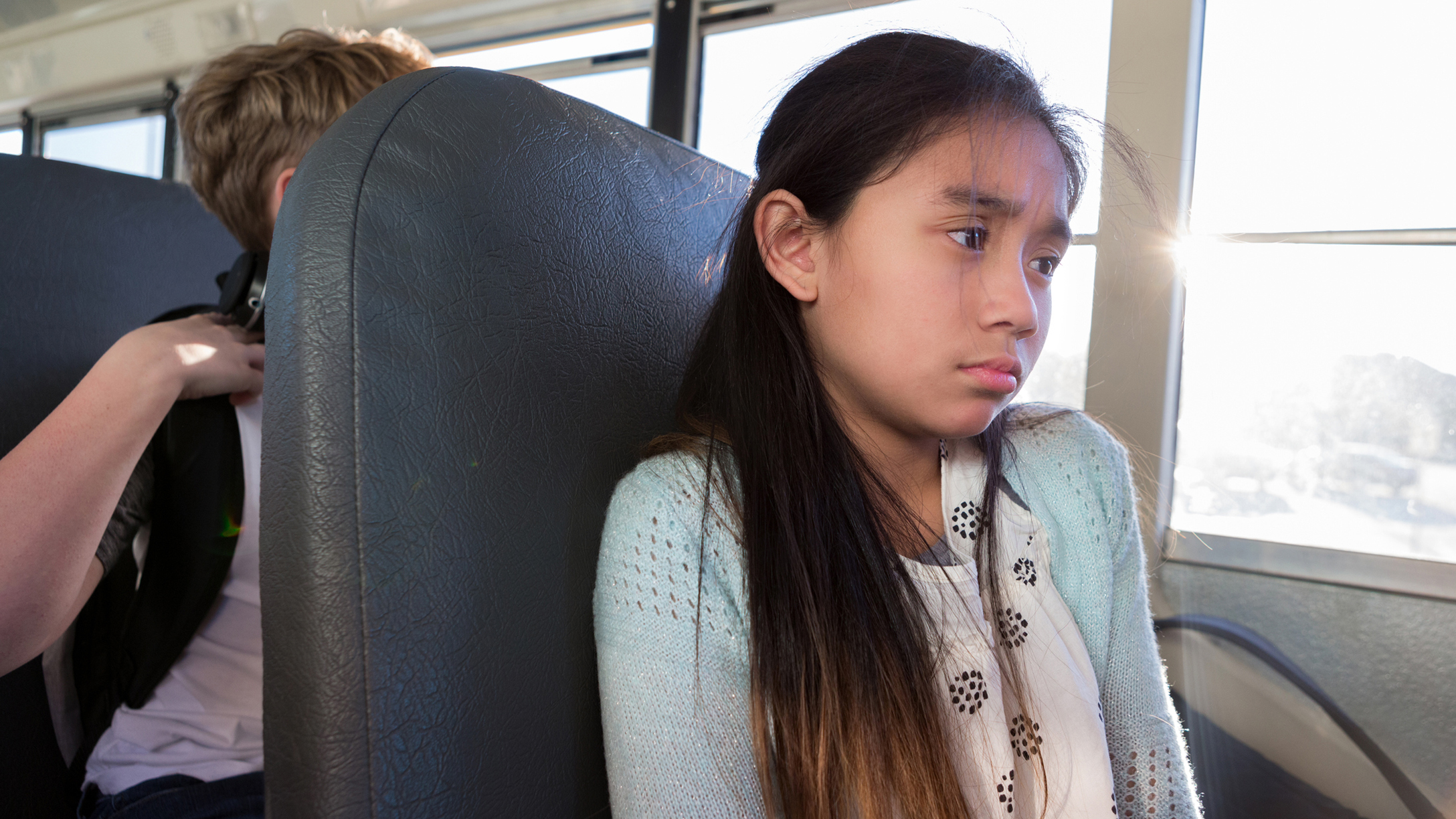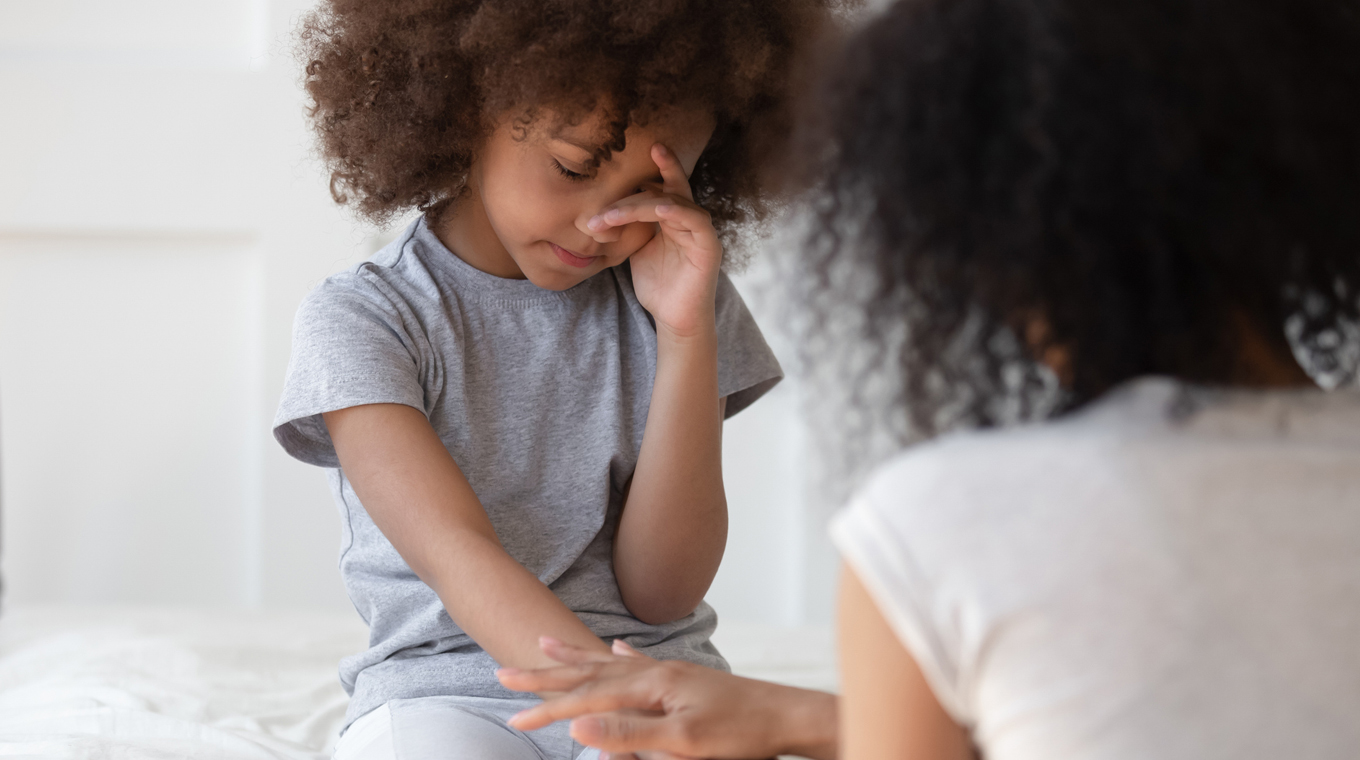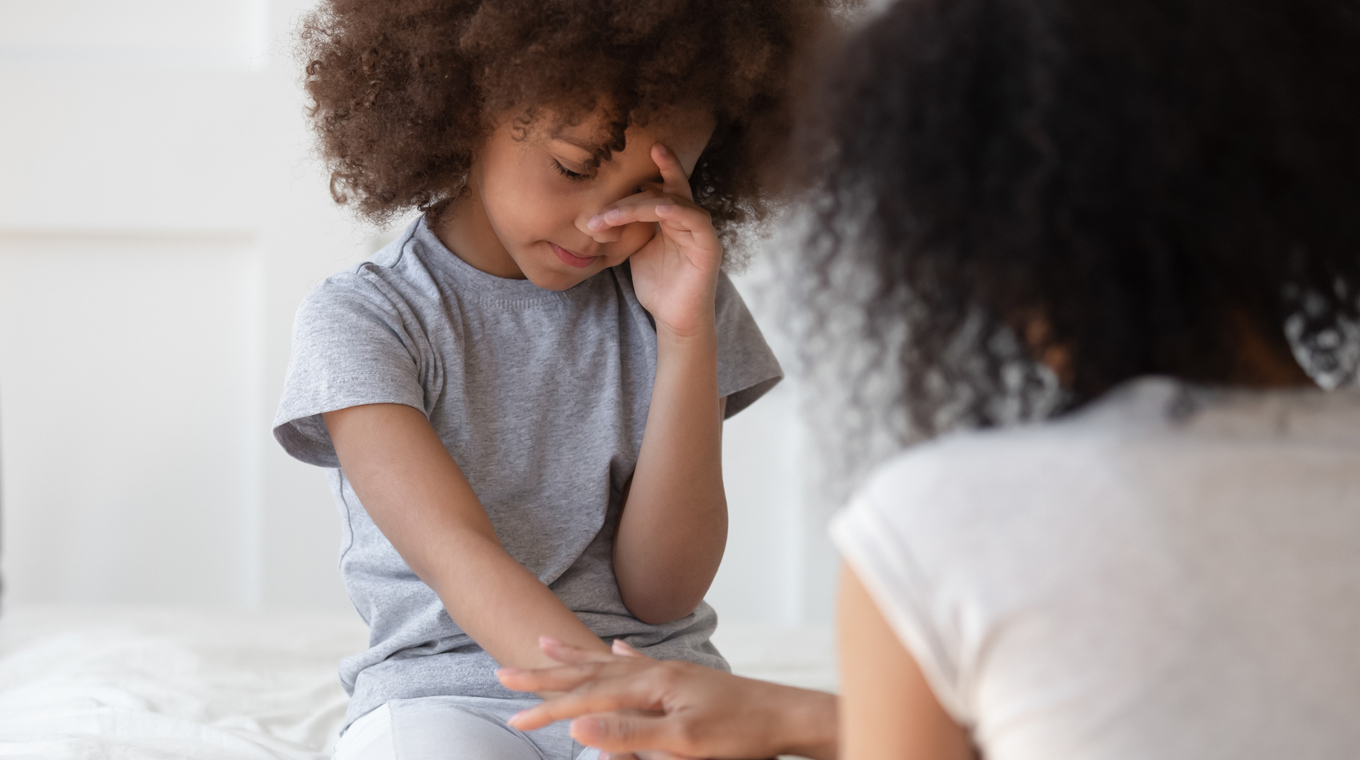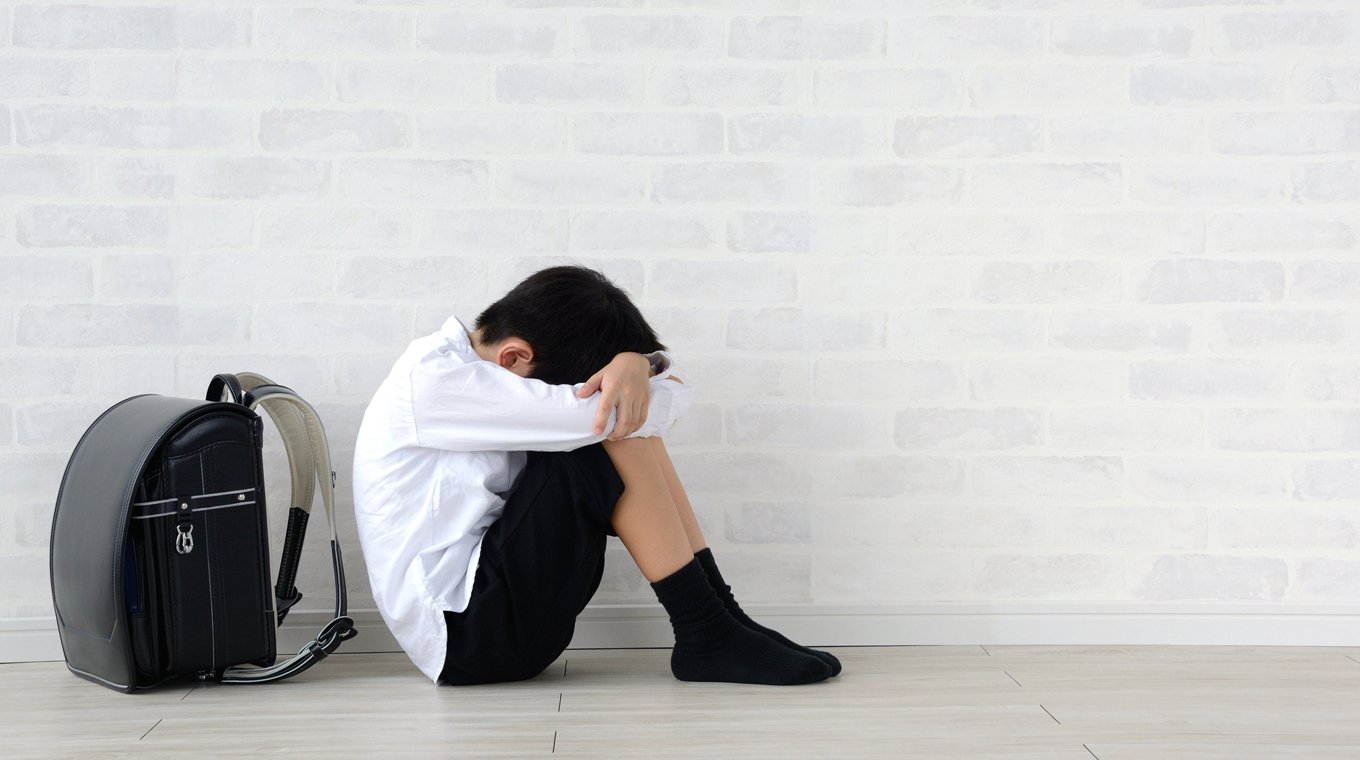
In this article
Kids get scared. Whether it’s of the dark, monsters, or new situations, common fears can be difficult to distinguish from a more serious anxiety in children. While we may think of older children or teenagers experiencing excessive unease, younger kids and even toddlers can be apprehensive to the point of needing professional help as well. How do you know if your child is experiencing developmentally appropriate worries or if you need to seek help for anxiety in your child? How can you help, if you’re also prone to anxiousness?
How common is anxiety in children?

Although we tend to consider nervousness a bad thing, the feeling can be a useful guide for physically or emotionally dangerous situations. The unease can even be helpful to identify social situations where one may need to stand up for someone or be a good ally for our friends.
Dr. Keri Turner explained to Mom.com what normal nervousness in children looks like. “Normal anxiety won’t disrupt your child’s day-to-day life on a regular basis while more severe anxiety will,” she said. “Pay attention to the intensity of their reactions, as well as their ability to calm down and adjust over time. If they remain intense and struggle to calm, this may be more than normal anxiety.”
While it is a normal part of childhood to feel anxiety, some kids face extreme or persistent anxiety and depression. According to the Centers for Disease Control and Prevention (CDC):
- 7.1% of US children aged 3 to 17 years (approximately 4.4 million) have diagnosed anxiety
- 3.2% of US children aged 3 to 17 years (approximately 1.9 million) have diagnosed depression
“Nervousness before a test or getting up to speak in front of the class is normal,” mom of four, Whitney Cornelison, told Mom.com. “Being nervous about starting something new, also normal. Anxiety about going to school, new situations, making friends, or anything that hinders their quality of life should be evaluated by a counselor or medical professional to find the root cause.”
What are the signs and symptoms of anxiety?

Clinical social worker Andrea Eisen Bates shared a few signs to look out for: “Watch for their resistance to participate in new situations. Do they withdraw? Get angry? Insist they don’t want/need to go?”
According to Dr. Turner, being a child comes along with many new experiences which understandably means a lot of uncertainty and potential fear when facing the unknown. “Don’t be alarmed if your child is quiet in new situations, gets a stomachache on the first day of school, or needs a bit more encouragement to socialize,” she explained. “They may even have some tears or odd behaviors in reaction to doing something that is uncomfortable for them.”
Because chronic anxiety can lead to depression or substance use, it’s important to diagnose and get treatment. Unfortunately, as reported in the 2015 Child Mind Institute Children’s Mental Health Report, 80% of kids with anxiety disorder and 60% of kids with depression are not getting treatment.
“Some signs of worsening anxiety may include changes in mood or behavior, such as sudden extreme mood swings, avoiding activities that used to be fun, or trouble sleeping,” pediatrician Dr. Steph Lee told Mom.com.
So, how can you help your child? “Recognize your child’s fears and continue to encourage them to enter into the uncomfortable situations; this should help your child’s worry subside,” Dr. Turner suggested. It is only when this encouragement and support doesn’t seem to help over time that it may be more serious.
When to seek professional help

Don’t be afraid to reach out for professional help when your child’s anxiety feels unmanageable or interferes with day-to-day activities. “We got help once our son’s anxiety was keeping him from going to school and developing relationships,” confided Merry Spooner Kuchle to Mom.com.
Dr. Lee advised, “When anxiety starts to interfere with grades or loss of friends, then it may be a more serious issue requiring a professional’s help.” The spokesperson for the American Academy of Pediatrics (AAP) further recommended parents do the following:
- Talk to your child first. Find out if there’s a particular situation or event that is causing them increased anxiety.
- Talk through the situation or event.
- Consider asking a therapist or pediatrician to discuss coping strategies and calming techniques.
Many kids with anxiety may feel that parental pressure (real or imagined) compounds their nerves. Sometimes, enlisting the help of another trusted adult can be enough to help your child open up.







